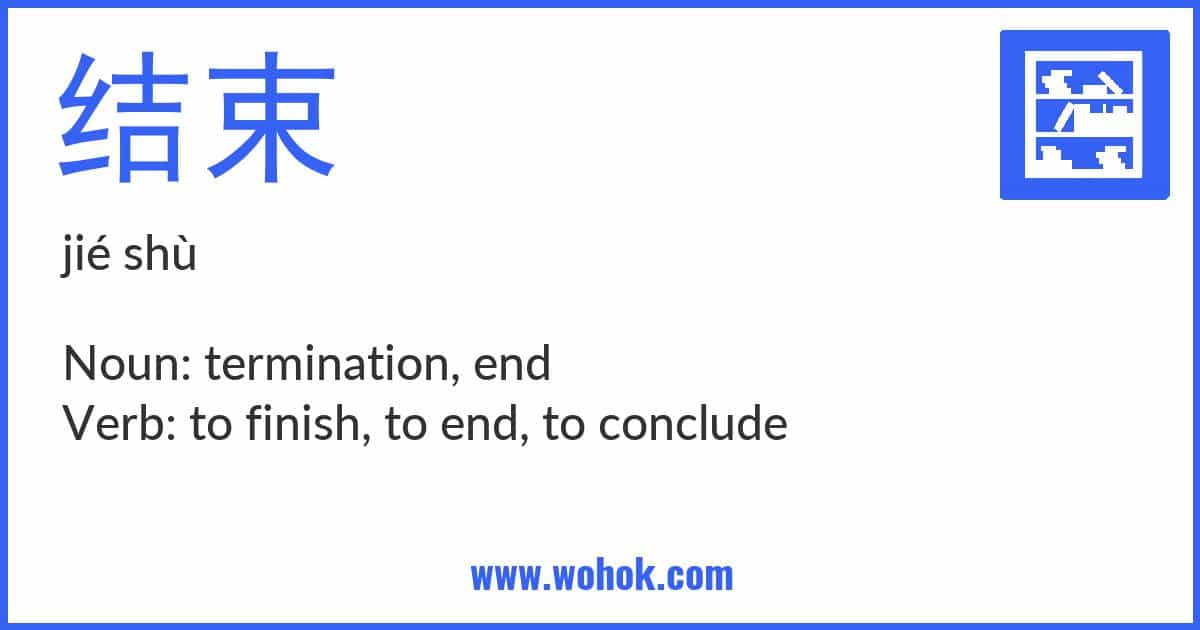The Chinese word “结束” means “to end” or “to finish”. It is commonly used in everyday conversation to indicate the completion of a task, event, or situation. For example, you might say “今天的工作结束了” to mean “Today’s work is finished”. In addition, “结束” can also be used to describe the conclusion of a relationship or a period of time, such as “我们的恋爱已经结束了” which means “Our relationship has come to an end”.
Translation
Noun: termination, end
Verb: to finish, to end, to conclude
Pronunciation
Example Sentences
| Chinese | Pinyin | Engish |
|---|---|---|
| 我们的会议已经结束了 | wǒmen de huìyì yǐjīng jiéshùle | Our meeting has already ended |
| 这个故事有一个美好的结局 | zhège gùshì yǒu yīgè měihǎo de jiélù | This story has a beautiful ending |
| 我们需要尽快结束这个项目 | wǒmen xūyào jǐnkuài jiéshù zhège xiàngmù | We need to end this project as soon as possible |
| 他们的关系已经结束了 | tāmen de guānxì yǐjīng jiéshùle | Their relationship has already ended |
| 我们必须结束这个不健康的习惯 | wǒmen bìxū jiéshù zhège bù jiànkāng de xíguàn | We must end this unhealthy habit |
| 这个节目将于晚上十点结束 | zhège jiémù jiāng yú wǎnshàng shí diǎn jiéshù | This program will end at 10 pm tonight |
| 我们需要一种有效的方法来结束这场争吵 | wǒmen xūyào yī zhǒng yǒuxiào de fāngfǎ lái jiéshù zhè chǎng zhēngchǎo | We need an effective way to end this argument |
HSK
结束 is part of HSK Level 3 in both HSK 2.0 and HSK 3.0.
Learning Card


